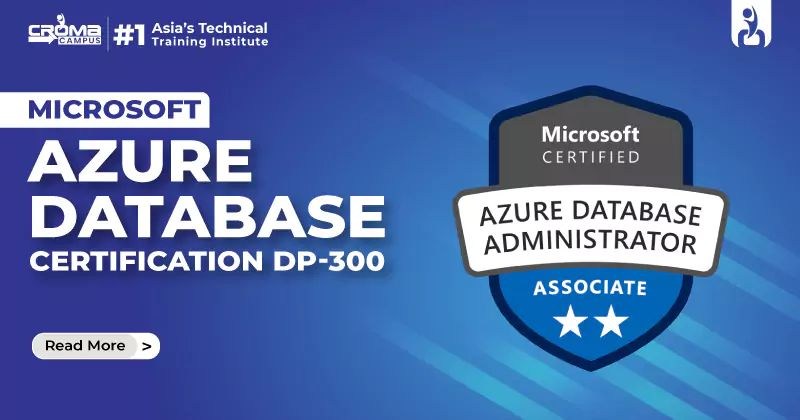How Is Azure Kubernetes Service (AKS) Transforming Cloud Infrastructure?
4.9 out of 5 based on 12478 votesLast updated on 18th Jan 2025 21.9K Views
- Bookmark

Discover how Azure Kubernetes Service (AKS) revolutionizes cloud infrastructure with efficient container orchestration, scalability, and automation.

Introduction:
To begin with, Kubernetes is an open-source system for automating the deployment, scaling, and management of containerized applications. Using AKS helps in simplifying the Kubernetes by managing the underlying infrastructure. This approach ensures that a user doesn't have to worry about setting up and maintaining the Kubernetes cluster. Here are some significant benefits of Azure Kubernetes Service (AKS).
- Enhanced Productivity: Using AKS helps developers focus on building and deploying the applications. It ensures that they don't have to manage the complexities of Kubernetes.
- Scalability and High Availability: AKS comes with various in-built services useful for scaling your applications up or down. Furthermore, it ensures better availability by replicating your applications across multiple nodes.
- Integration with Azure: This solution seamlessly integrates the other Azure services. Examples are Azure Monitor for monitoring and logging, Azure Active Directory for authentication, and Azure Networking for secure connectivity.
- Security: The AKS solution facilitates robust security features such as network security groups, role-based access control, and integration with Azure Security Center.
Note: If you're in Delhi and seeking an offline course such as Microsoft Azure Training in Delhi, consider visiting Croma Campus. They offer free consultations to help you choose the course that best aligns with your skills and interests.
Why Use Azure Kubernetes?
Using Azure Kubernetes provides businesses with a powerful and efficient platform for deploying and managing containerized applications on Azure. Implementing this solution helps enhance scalability and provide robust security features. Along with this, Azure Kubernetes ensures that businesses can accelerate their cloud adoption journey. This approach helps gain a competitive advantage for businesses. There is a high demand for skilled Azure professionals, and companies prefer Azure Training for their employees. Here are some benefits of using Azure Kubernetes.
- Simplified Kubernetes Management: AKS helps in managing the Kubernetes cluster and ensures that you don't have to set and maintain the control plane, nodes, or infrastructure.
- Increased Developer Productivity: This solution empowers the developers to focus on building and deploying applications faster. It helps in deploying the applications with ease and scaling resources on demand.
- Enhanced Scalability and Availability: AKS provides businesses with various built-in features useful for scaling the applications up or down. Along with it, this solution ensures high availability by automatically replicating your applications across multiple nodes.
- Improved Security: AKS provides businesses with robust security features. Along with this, it also facilitates integration with Azure Security Center. Thus, helping in protecting your applications and data from threats.
- Cost-effectiveness: Using AKS provides you with flexible pricing models. Along with this, it ensures that users only have to pay for the resources they consume. This helps in optimizing the costs based on your application's requirements.
- Seamless Azure Integration: This solution seamlessly integrates with other Azure services. Furthermore, this integration simplifies your overall cloud infrastructure and enhances operational efficiency.
- Focus on Innovation: Leveraging AKS ensures that businesses can work on innovation and differentiation. Furthermore, they can quickly deploy and scale modern, cloud-native applications.
Note: Looking for top-notch Azure Training in Noida? Join Croma Campus for expert-led courses that cover all Azure concepts and certification preparation. Gain hands-on experience and boost your cloud computing skills with industry-leading trainers.
Azure Kubernetes Service Use Cases:
Azure Kubernetes Service (AKS) is useful for numerous applications across various industries and use cases. This is a versatile platform useful for a wide range of applications and businesses. Let's have a look at the important use cases of AKS.
- Micro services Architectures: AKS is useful for deploying and managing micro service-based applications. Along with this, it provides businesses with the necessary infrastructure for deploying, scaling, and managing these micro services independently.
- Web Applications and APIs: This solution helps in deploying and scaling web applications and APIs efficiently. Its features, like auto-scaling, load balancing, and automatic rollouts, ensure high availability and performance.
- Machine Learning Model Deployment: It is useful for deploying and managing machine learning models at scale. Furthermore, it provides a robust platform for training and deploying machine learning models.
- Batch Processing: This is useful for handling large-scale batch processing tasks, such as data processing, ETL jobs, and scientific simulations. Furthermore, it provides scalability and resource management capabilities.
- Internet of Things (IoT) Applications: AKS is useful for processing and analyzing data streams from IoT devices. It helps in building and deploying the edge computing solutions for real-time data processing and analysis.
- Game Development: AKS is also useful for deploying and scaling game servers and backends. It provides great flexibility and scalability required to handle the fluctuating demands of online games.
- DevOps and Continuous Integration/Continuous Delivery (CI/CD): This solution helps in automating the deployment and management of applications using CI/CD pipelines. It also facilitates integration with Azure DevOps and other CI/CD tools.
You May Also Read This Blog Posts:
Microsoft Azure Certification Cost
Incremental Load With Azure Data Factory (ADF)
Microsoft Azure Virtual Machines (VMs)
Microsoft Azure Interview Questions
Network Security Groups (NSG) And Firewalls In Azure
Best Microsoft Azure Certifications:
There are numerous Microsoft Azure Certification, and choosing them depends on your current role, career goals, and desired skill set. Having the right certification can enhance your skills, increase your earning potential, and advance your career. Here is a list of some of the most valuable and in-demand certifications:
- Azure Fundamentals (AZ-900): It shows your foundational knowledge of cloud concepts, Azure services, and core solutions.
- Azure Administrator Associate (AZ-104): The Azure 104 Certification is for implementing, managing, and monitoring Azure infrastructure solutions.
- Azure Developer Associate (AZ-204): This credential focuses on building, testing, and deploying cloud applications on Azure.
- Azure Solutions Architect Expert (AZ-305): The Azure Solution Architect Certification shows your skills in designing, implementing, and managing cloud solutions.
- Azure Security Engineer Associate (AZ-500): This credential is for implementing and managing security controls and threat protection.
- Azure Data Fundamentals (DP-900): The Azure DP 900 Certification shows that you have the knowledge of data fundamentals.
Related Courses:
Azure App Service vs. Azure Kubernetes Service (AKS):
To begin with, both Azure App Service and AKS are platforms for deploying and hosting applications on Azure. Both of these platforms are useful for managing different needs and offers. Let's have a comparison between these two tools:
Azure App Service:
This solution is for simplifying application deployment and management for web, mobile, and API applications. It is very user-friendly and requires minimal Kubernetes knowledge. This solution is best suited for making simple web applications, APIs, and mobile backends. It is ideal for the teams that prioritize ease of use and rapid deployment. Here are its key features:
- Auto-scaling, high availability, and built-in security features.
- Supports various languages and frameworks
- Integrated with other Azure services like Azure Functions and Azure Logic Apps.
Azure Kubernetes Service (AKS):
This tool is useful for managing the Kubernetes environment for deploying and managing containerized applications. It provides great flexibility and control and ensures better application deployment, scaling, and resource allocation. It is ideal for developing complex and demanding applications with specific Kubernetes requirements. This tool is mostly used by the teams that have strong Kubernetes expertise. Here are its key features.
- Fully managed Kubernetes experience.
- Supports a wide range of containerized applications.
- Integrates with other Azure services.
Conclusion:
Azure Kubernetes Service (AKS) is a powerful platform. It simplifies Kubernetes management, enhances scalability, and provides robust security for deploying and managing containerized applications. By leveraging AKS, organizations can accelerate application development, improve operational efficiency, and gain a competitive edge. AKS finds applications across various domains, including micro services architectures, web applications, machine learning, and IoT. By mastering AKS and its integration with other Azure services, organizations can effectively leverage the power of cloud computing.
Subscribe For Free Demo
Free Demo for Corporate & Online Trainings.
Your email address will not be published. Required fields are marked *





















 Master in Cloud Computing Training
Master in Cloud Computing Training